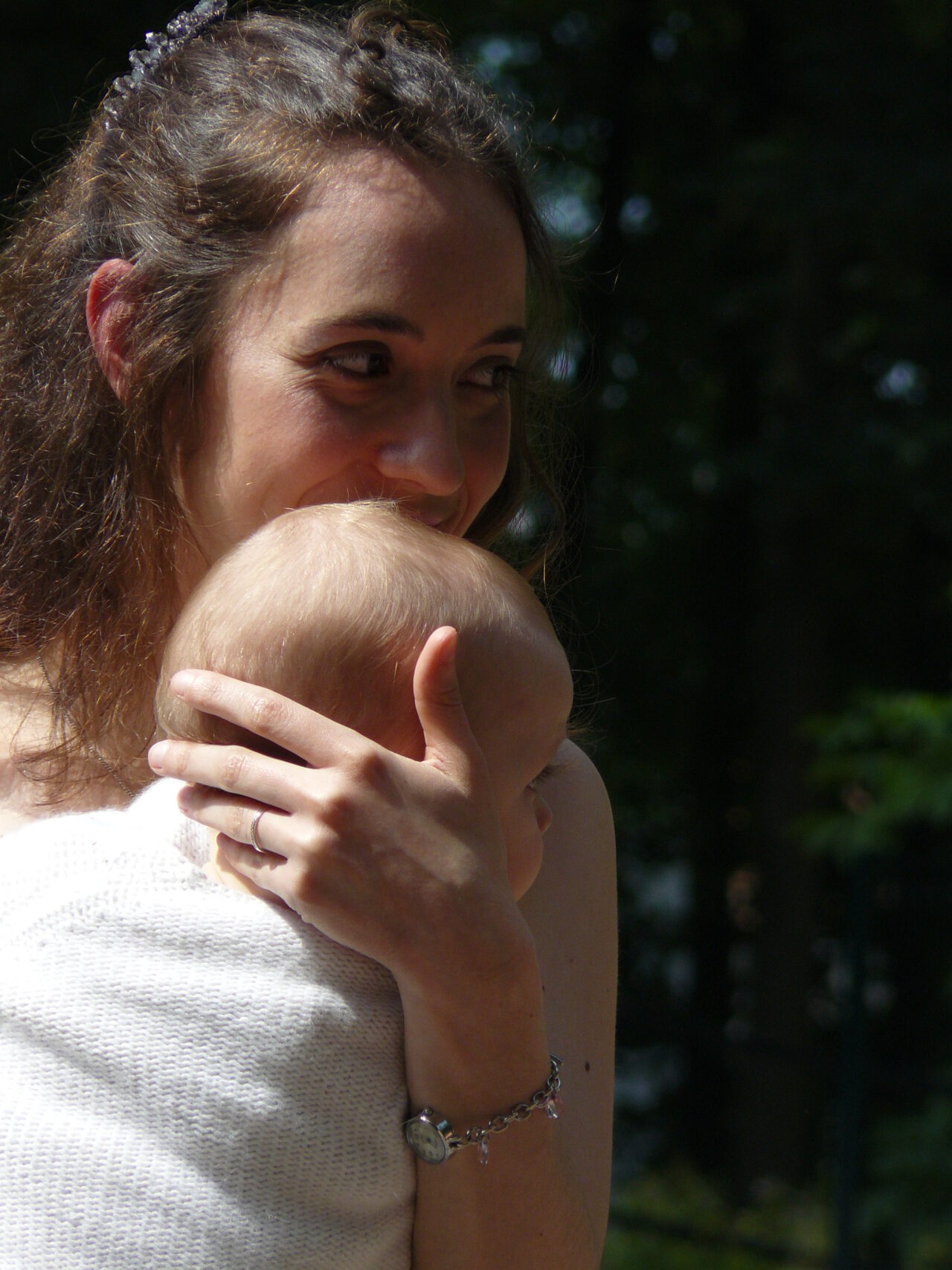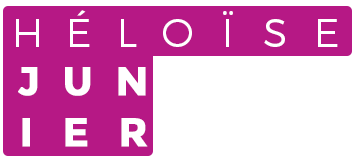
Baby and me, extraordinary communication!
 Read this article published in Infobébés and Infocrèche magazines.
Read this article published in Infobébés and Infocrèche magazines.
Baby is a master communicator. But to help him perfect his art and ensure a life full of encounters and exchanges, you’ve got something to say to him. Let’s get to work!
From the very first months of life, we establish with our child a unique way of conversing that will shape the history of both of us. The use we make of our face, our eyes, our voice, or even our hands, constitutes our baby’s first contact with the human world. And yes, this little human being comes into the world with a fabulous power: the ability to be attracted by human contact and to provoke it! However, his or her ability to relate to those around him or her is still « immature ». So, as some of his faculties develop – his smile, his gaze… -your exchanges will intensify.
- Baby talk is all good!
Each of us behaves intuitively and spontaneously with our baby. Whether we realize it or not, our way of doing things is very particular. For example, when talking to our baby, we all tend to use a higher tone of voice, simplify our vocabulary, schematize our sentences, produce meaningless sounds and exaggerate our expressions. What’s even more striking is that not only is this way of communicating with our child totally natural, it’s also universal! Just for fun, speak at regular, rapid intervals to your partner, then to your child, then to your partner, then to your child. You’ll be amazed at how your way of speaking varies from one person to the next!
Good to know: because of Baby’s early awareness of the melody of your language, psychologists have shown that, from the age of eight months, his babbling will be different from that of an American or Chinese baby…
- Her first smile
Like our eyes, Baby’s smile will soon evolve into the real social smile we all use every day with our sister, our partner, our colleagues. In fact, the shape of this smile does not change over the course of our development. Only what triggers it evolves! « It’s funny, but I have the feeling that, from the moment she was born, my little Mathilda was smiling at me! It was a cute little smile, very cute, close to her mom’s smile. I took some lovely photos of her! » says Livio, father of 9-month-old Mathilda. In reality, contrary to what you might think, a baby’s first smiles are simply the result of internal stimuli such as hunger or sleep, a kind of « reflex » smile. But it’s precisely because you label this lip movement as a smile, and therefore smile back, that it becomes a truly intentional, relational smile. This is when the famous « social » smile so eagerly awaited by parents appears, around his third month.
- You’re a fabulous awakening tool!
Between adults, as between children, all communication is a two-way street, with the attitude of one influencing that of the other, and vice versa. For example, you won’t address your boss in the same way if he seems relaxed as if he seems angry. His attitude will change your own. In reality, we spend all day adapting our behavior to our interlocutor, more or less consciously. Well, it’s exactly the same with you and your child, whatever their age! Karine, mother of Alix, 26 months, explains: « At the beginning, when I dropped my 7-month-old son Alix off at nursery school, I sometimes shed a few tears. It’s strange, but at those times, I had the feeling that my sadness was ‘rubbing off’ on him. I felt that he was lacking in spirit compared to usual. But then I managed to get a grip on myself, I was more serene and I felt that my son was too ». Worried and concerned when your baby cries, you involuntarily change the expression on your face: you make a puzzled pout, you purse your lips, you frown. And this is bound to affect your child’s own behavior, perhaps even leading to more crying. As countless studies have shown, your child is particularly sensitive to your facial expression.
- When Mom gives me confidence!
It’s called the « visual cliff »: a twelve-month-old baby is placed on a glass table separating him from his mother, whose transparency creates an illusion of emptiness. The results show that children whose mothers smile cross this cliff without hesitation… While those whose mother has a frightened face don’t! Keep this little story in mind, and imagine how many times you can help your little one overcome a new challenge with a simple look or a simple face!
- Games for extra stimulation!
« I love playing ‘peek-a-boo’ with my little Jean. I feel like he’s having as much fun as I am! When we share this moment, I tell myself that the others must think I’m a completely gaga mom. It’s always a great time for both of us, » confides Colette, mother of 8-month-old Jean. Indeed, the famous « cuckoo game » allows you to awaken your child, to get in touch with him easily and of course… to give you both a lot of pleasure!
This episode, which consists of a succession of facial disappearances and reappearances, is a favourite game with children the world over, and always has been! The same goes for Diane’s kisses on 8-month-old Yannick’s tummy: « When I change him, I always take the opportunity to « fart » on his tummy with my mouth. It makes him laugh so much! « . And yes, your child particularly appreciates being stimulated and awakened, and this stimulation can be sensory (tickling the tips of his feet with a feather duster) or intellectual (showing him a blue ball among a set of red balls). Similarly, to arouse his interest when you talk to him, don’t hesitate to accompany your language with little episodes of arousal: kissing his fingertips or stroking the soles of his feet. He’ll be all the more alert and satisfied!
- But from a safe distance…
The only obstacle to these exchanges is the need to respect the « intimate distance ». What’s that? Let’s take a situation we’re all familiar with: imagine yourself in the subway or on the train, on a day when there’s a strike. The sheer number of people per square metre means you’re forced to stick close to people you don’t know, which is very uncomfortable. So, to reduce your discomfort, you try not to find yourself face-to-face with a stranger. Each of us needs a personal space, a kind of psychological bubble around our body, an intimate distance which, once encroached upon by someone else, makes us particularly uncomfortable. This bubble, which is around 60 cm, varies from culture to culture. What about Baby? « And now… the kissing attack! Yum yum! » enthuses Anne-Claire to her 5-month-old daughter. But the moment her heart-shaped mouth moves closer and suddenly lands on her little Marie-Bénédicte’s cheeks, the latter widens her eyes, raises her eyebrows, half-opens her mouth, emits a high-pitched sound, and energetically moves her two little hands. Many psychologists have studied this reaction: it seems to reflect surprise rather than pleasure. And yes, contrary to popular belief, babies don’t like it when we encroach on their space in this way any more than we do, and may experience this rather rough approach as aggression! However, of course, this reaction also depends on your child and your play habits…
Our advice: first get your baby used to seeing your face approach and then gently move away before you let yourself be tempted by a « kissing attack » or the famous « I’m going to eat the tip of your nose »!
As you’ve seen, you have an immense and fascinating role to play in leading your child along the path to awakening. So open your eyes, hone your smiles, work on your facial expressions, invent sweet words, sing, laugh… These will all be assets passed on to Baby, for the better and for laughter!
